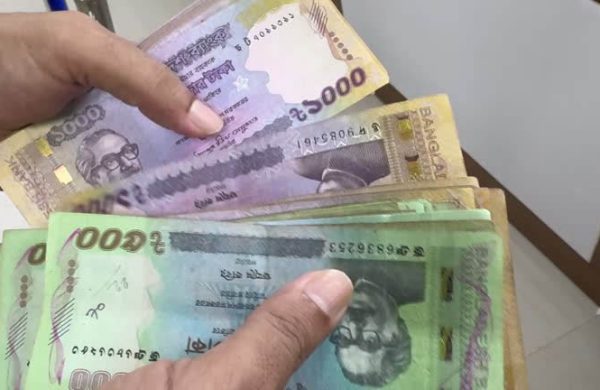Bank deposit growth slows to 7.7pc in May despite high interest rates
- Update Time : Thursday, July 17, 2025

Staff Correspondent:
Deposit growth in Bangladesh’s banking sector has further slowed down in May. According to Bangladesh Bank data, it stood at 7.73 per cent at the end of May.
Deposit growth was 8.21 per cent in April and 8.51 per cent in March. Many banks are currently offering interest rates of 9-11 per cent on deposits. Some banks facing a liquidity crisis are paying up to 13 per cent interest. But even those incentives are not drawing the expected deposits.
According to Bangladesh Bank data, total deposits in banks increased to Tk 18.32 trillion by the end of May, up from more than Tk 17 trillion in May 2024. Accordingly, the year-on-year growth rate is 7.73 per cent.
Since September, deposit growth has been subdued, dropping to 7.26 per cent. Although this rate has fluctuated since then, it has not yet reached double digits.
Bank managing directors (MDs), economists and treasury chiefs have cited several reasons for the lack of growth in deposits.
These factors include the increase in interest rates on treasury bills and bonds, high inflation for two and a half years, lack of business expansion and unemployment.
Dhaka Bank’s MD Sheikh Mohammad Maroof said, “A portion of deposits goes towards treasury bills and bonds because they have higher interest rates. I don’t see any other reason.”
Currently, the interest rates of government treasury bills and bonds of various tenures are around 12.5-13 per cent.
Zahid Hussain, former chief economist at the World Bank’s Dhaka office, says Bangladesh has been facing high inflation for more than two and a half years, which is cutting into people’s savings.
“There are no savings at the end of the month. Income has not increased. Thus, the growth in deposits will decrease. Moreover, business expansion is low. The growth in bank loans in the private sector is also low.”
The growth in loans to entrepreneurs and businessmen in the private sector has been below 8 per cent for seven consecutive months. In May, the growth in loan disbursement in this sector was 7.17 per cent. In April, it was 7.50 per cent.
NRB Bank Managing Director Tarek Reaz Khan also believes the lack of expected business expansion and inflation may have an impact on deposit growth.
He said, “Savings are decreasing due to inflation. That is why less money is coming into the banking sector. However, when business in the government and private sector increases, the growth in deposits also increases.”
Several senior officials of the Bangladesh Bank say that generally, when loans from banks increase, the growth in deposits increases. This is because when loans are given to the government and the private sector, the money returns to the bank as deposits and money circulation increases.
A senior official at Bangladesh Bank said that, considering the overall state of the economy, the growth in deposits should be at least 10 per cent.
Another official at the central bank noted that the unemployment rate is increasing and pointed to it as hurting deposits. If people have work, some part of their income comes to the bank as deposits. The latest calculations show that the number of unemployed people has increased.
Regarding the lack of improvement in deposit growth, Bangladesh Bank Governor Ahsan H Mansur said in several press conferences and events in May that a substantial amount of money has left the banking channel mainly because of dollar laundering, creating a money crisis. Therefore, banks are not able to increase deposit growth even when they offer high interest rates on deposits.
















